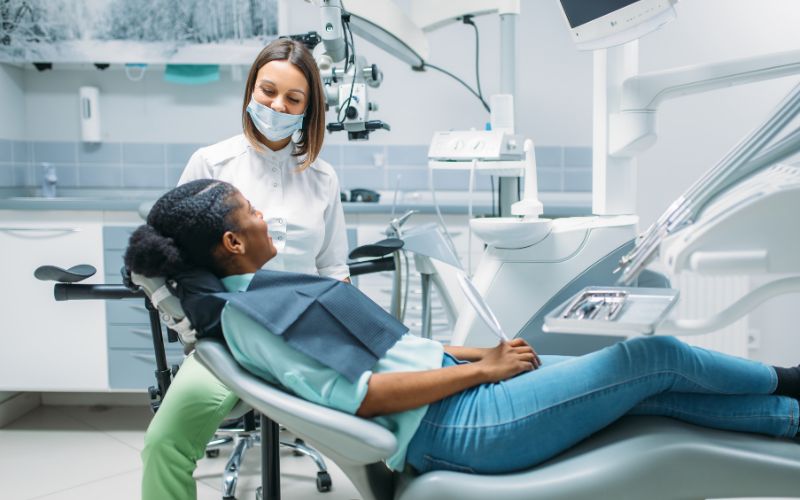Table of Contents
ToggleWhy Should You Bother With Regular Dental Visits?
If you’ve already decided to have a dental check up, then you’ve already taken an important first step towards better oral health. If you haven’t, there are some good reasons why you should consider it.
Checkups and cleanings are preventative. Plaque and tartar buildup is removed from your teeth during the cleaning, which reduces your risks of cavities, gum disease, and other oral problems. Any early signs of issues are discovered, before you may even notice any symptoms, so a treatment plan can be developed to prevent them from becoming significant issues. This can save you from having more complex procedures later, like a root canal treatment.
If you have pain, bleeding, cysts, or other changes in oral health, don’t delay treatment, as these can be signs of significant issues.
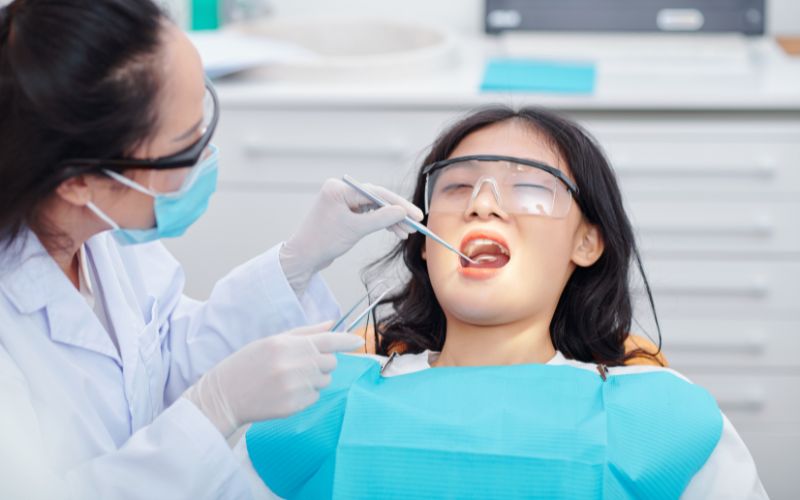
What Happens During a Check-Up?
Initial Cleaning by a Dental Hygienist
After you have checked in at the reception, you’ll be brought to a dental exam room. You’ll get in the chair, and your hygienist will cover you with a paper apron, and may ask you if you have had any concerns. Many dental offices have TVs in every room so that you can watch Netflix while your cleaning is being done.
The hygienist will use various metal or ultrasonic hand tools to carefully and gently scrape off any tartar and plaque build up. Debris will be rinsed away throughout the procedure, and a small rubber vacuum-like suction will be used to suck the debris and excess water away. Even if you brush and floss diligently, tartar builds up, especially along the gum line.
If you haven’t had a professional cleaning before or not for several years, this may take a while, and your gums might be a bit red; any discomfort or pain shouldn’t last long. With more regular dental visits, the cleaning time will get shorter, and your gums won’t get irritated as much. If your tartar build up is very bad, your dentist may recommend a scaling treatment or root planing procedure. Always let your hygienist know if something is uncomfortable.
Your dental hygienist will floss your teeth afterwards, and then rinse again. A tool with a small, round rubber head will be used with a special paste to polish your teeth. This step of your teeth cleaning will polish away any surface stains. Your teeth will be rinsed again. Some hygienists will give you a heated face towel to wipe your face and help you feel clean and refreshed.
If your dentist recommends it, you may be given a fluoride treatment. The fluoride is simply painted on to your teeth. You will need to avoid eating or drinking for an hour, so this treatment isn’t washed away.
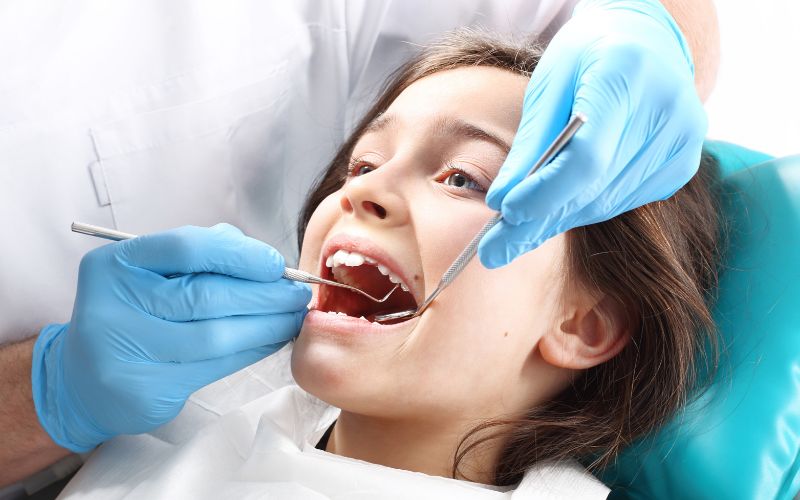
Dental Exam for Oral Health Issues
Next, your dentist will ask you about your dental history and whether you have any concerns, and then perform a full examination of your mouth. A periodontal probe will be used to measure the depth of gum tissues. An oral cancer screening will be done, as well as checking for tooth decay, tooth enamel damage, gum disease, and other oral issues.
Your dentist will then advise you of any concerns and make recommendations. Feel free to ask any questions.
Dental X-Rays and Diagnostics
X-rays will probably be done on your first dental visit, and again every couple of years, or more often, depending on your medical history and other factors. These help with the diagnosis of For your first dental visit at any new clinic, you will probably be sent new patient forms to fill out online before you come in. You can also complete this at the office, but you will need to allow extra time. Even if you completed your new patient forms ahead of time, you should come in a little early to get set up. You will need to provide your dental insurance cards to help set that up.
The new patient forms will ask about your dental history and general medical history, so be prepared to provide that information.
If you are severely anxious about your dental visit, let the office know, and ask about sedation options, cysts and tumours, jaw bone issues, impacted teeth, and tooth decay not visible to the naked eye.
Modern digital x-rays give off very little radiation. However, your dental hygienist covers you with a lead apron as a precaution, and you should advise your dentist if you are pregnant.
A Panoramic x-ray, which shows your complete bite in one picture, or other diagnostics may also be completed.
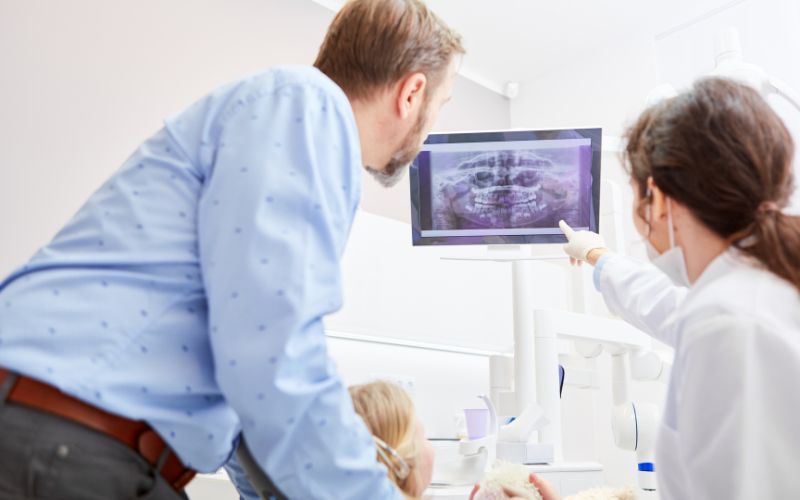
First Visits For Children
Try to be positive and calm for your child. While you may be anxious about dental visits, your child may not be, but children can pick up parents’ anxieties and become anxious themselves. A key goal of the first visit is to let your child become comfortable with a dentist. Let your dentist know about how your child is likely to react to the situation.
It’s recommended to schedule a first visit before your child turns one year of age, or within six months of teeth erupting. This lets the dentist check that everything is developing properly. Your child may need a cleaning, too. Your dentist will take time to educate you on prevention of concerns like baby bottle tooth decay or other problems. X-rays are not usually done, unless there is a concern.
How Often Do You Need a Dental Examination?
Payment
For your first dental visit at any new clinic, you will probably be sent new patient forms to fill out online before you come in. You can also complete this at the office, but you will need to allow extra time. Even if you completed your new patient forms ahead of time, you should come in a little early to get set up. You will need to provide your dental insurance cards to help set that up.
The new patient forms will ask about your dental history and general medical history, so be prepared to provide that information.
If you are severely anxious about your dental visit, let the office know, and ask about sedation options.
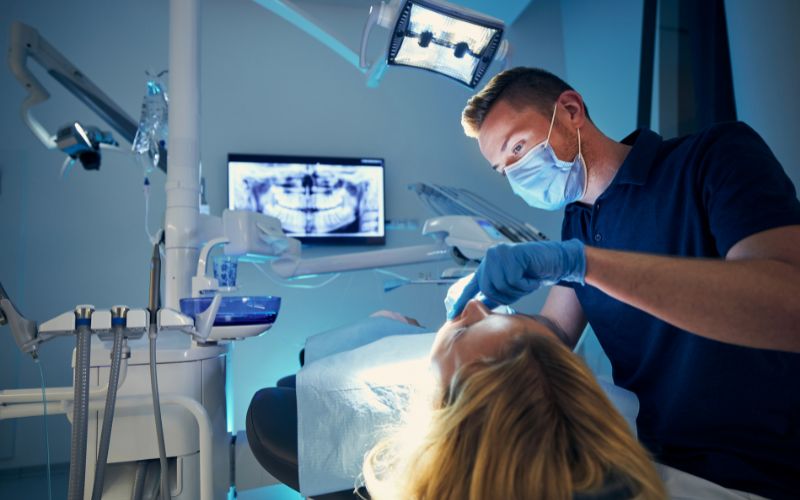
Prioritize your oral health with a dental exam and cleaning at Onyx Dental, your trusted dentist in Erin Mills. Contact us at (905) 567-4999 or visit 2555 Erin Centre Blvd Unit 12, L5M 5H1 for a comfortable, judgment-free experience focused on your smile’s well-being.


